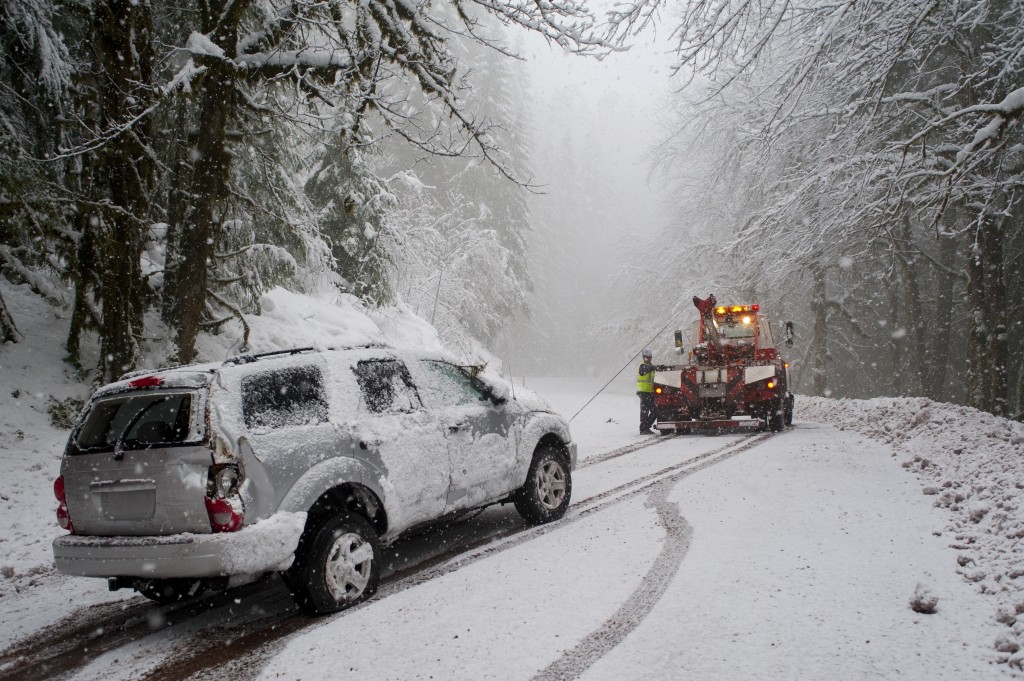With the recent ‘Beast from the East’ and it’s smaller sibling, ‘Mini Beast from the East’, Britain is dealing has coped with the freezing temperatures and snow in the only way it knows how – that is, not very well. Our fellow Europeans had it even worse, with temperatures into the double minus figures, and seemed to get by without the level of travel chaos, burst water pipes, media hype and hysteria that ensued in this country. But then again, isn’t this what makes us British?
For many, the arrival of cold and snowy conditions is greeted with excitement and a certain romantic sentiment. However, for those who are expected to work in extreme cold and ice, there is a considerable risk of injury if employers do not implement safe working practices for such conditions.
When is it too cold to work?
Under the Workplace (Health, Safety & Welfare) Regulations 1992, indoor workplaces must be at least 16C, or 13C if severe physical effort is required for a role. There is, however, no minimum legally mandated temperature for those working outdoors. This does not mean that employers of workers who are routinely required to work outdoors in inclement conditions are absolved of responsibility for their welfare. If the conditions are potentially unhealthy or unsafe, employers have a legal duty to ensure that workers are not required to work. There are of course jobs in which it would be impossible to cease all activity due to freezing outside conditions (e.g. farmers and emergency services), therefore employers must make sure that there are clear policies and safe working practices for those individuals.

What is ‘cold stress’?
Cold stress is a potentially serious medical condition whereby the body is unable to preserve its normal temperature due to prolonged exposure to low temperatures and can lead to damage to the body, and even death in extreme circumstances. Any worker who is routinely exposed to cold temperatures is at risk of cold stress, especially if the risks are not adequately managed. Additional factors such as wind can increase the likelihood of cold stress occurring, as warmth is more rapidly drawn from the body. And this phenomenon does not require extreme cold to occur; exposure to rain and high wind without proper protective clothing can cause the core body temperature to drop and lead to dangerous symptoms.
Cold stress can lead to hypothermia, which is marked by excessive shivering, disorientation, extreme fatigue, slow pulse & breathing, and blue skin. In its later stages, those affected by hypothermia may lose consciousness and go into a coma.
Most vulnerable are those who routinely work outdoors, or in cold storage environments, or unheated buildings (such as warehouses). In addition, cold stress is more common in those with pre-existing medical conditions such as diabetes, and cardiovascular disease (which can both impair the ability of the body to pump blood to the peripheral parts of the body).
What are the other risks of the cold for workers health and safety?
One of the more obvious impacts of cold conditions is the significant risk of slipping and falling on icy surfaces. The Health and Safety Executive’s (HSE) Approved Code of Practice (ACoP) L24 for the Workplace (Health, Safety and Welfare) Regulations, makes it clear that employers must minimise the risk to workers of snow and ice – such as by gritting and clearing snow in high-risk areas (e.g. stairs). In situations in which the walking surface conditions cannot be managed by the employer – for example, for delivery drivers walking on private driveways and paths, employers could consider issuing slip resistant shoes and provide guidance on ways of reducing the risk of slipping.
Cold conditions can also mean that workers are more vulnerable to lung conditions such as bronchitis and asthma, and skin damage such as frostbite, burns, and chilblains. Low temperatures can also make the joints are more painful and stiff for some people, meaning that workplace machinery, such as pneumatic vibrating tools, can place more stress on the body.
Worker seriously injured in an industrial freezer
In November 2017, Harlech Foodservice, a frozen food company based in Llanystumdwy, Criccieth, was fined £80,000 due to an incident which occurred in August 2015 involving an industrial freezer. Gethin Williams had been moving a pallet truck into the industrial walk-in freezer, when due to condensation that had formed on a clear plastic curtain, which made it hard to see, he was struck by a fork-lift truck. Mr Williams suffered a serious foot injury which required three surgeries. Harlech Foodservice pleaded guilty to failing to ensure the health, safety and welfare at work of employees and failing to carry out a suitable and sufficient risk assessment. The company has now made safety improvements to the work environment, including the installation of a one-way door system at the entrance to the freezer.
Claiming compensation for a cold injury
Any worker who has suffered a serious injury at work due to exposure to cold may be eligible to make a compensation claim if it can be clearly shown that the employer was at fault. Russell Worth Solicitors can handle the end to end process for you, allowing you to focus on your complete recovery. Where we establish the employer is to blame, we will build a robust case by collating all of the necessary evidence. We also take most clients on a no-win-no-fee basis, otherwise known as a conditional fee arrangement (CFA), which means we are confident that your case has a strong chance of success.
At Russell Worth Solicitors we specialise in personal injury claims. If you have suffered a workplace injury and would like a free claim assessment, please call us now on 0800 028 2060 or complete our Online Claim Assessment.

